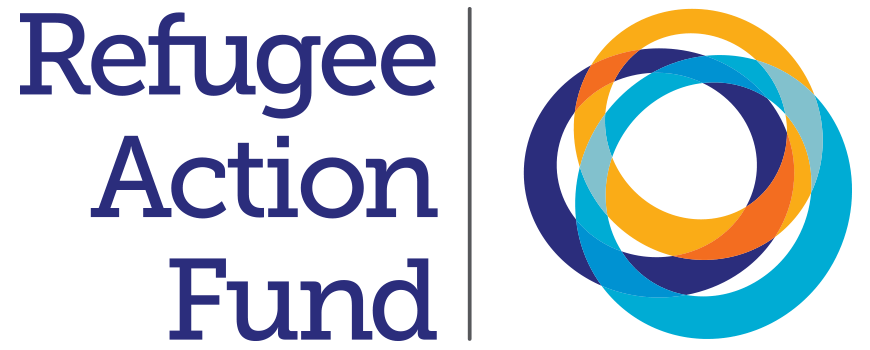By Julie Gersten
Four years ago, Refugee Action Fund launched in response to the growing refugee crisis as we witnessed millions of people fleeing for their lives. As the news cycle continued to churn out photographs and video footage of people traveling on boat and on foot with no safe place to go, we decided we had to act. Our goal was to mobilize our networks and raise money to support organizations providing safety and restoring humanity to people who were fleeing for survival.
Today, we find ourselves in the midst of the same crisis—the number of displaced people in our world continues to increase and governments continue to shut their doors—but with another crisis of great magnitude layered on top of it. Right now, millions of refugees are highly vulnerable to the impacts of COVID-19—subject to intense poverty, unstable and overcrowded housing, lack of access to medical treatment, persecution and violence. And, as countries close their borders to all but essential travel, refugees—whose travel is so essential because they are fleeing for their lives— are finding themselves trapped in impossible circumstances.
Refugee Action Fund has ramped up our support to organizations providing essential services to refugees and asylum seekers to meet these challenges. Yesterday, Refugee Action Fund hosted a webinar with staff from two organizations we support who are on the frontlines of protecting refugees in their greatest moment of need: Rachel Levitan, the Director of International Programs at HIAS, and Adela Mason, the Director of the Immigration Justice Project.
We encourage you to listen to them share how refugees are impacted by COVID-19, how they are responding and why your help is so critical right now:
Rachel talked about how the COVID-19 pandemic has cut off refugees and vulnerable migrants from sources of income, making it difficult for them to feed their families, maintain stable shelter or access medical care for even basic needs. She also highlighted the increase of anxiety, family violence and gender-based violence brought on by these circumstances. She talked about the lifesaving support HIAS is able to provide in giving cash assistance and round-the-clock social service support to vulnerable refugees in 16 countries around the world. Refugee Action Fund provided an emergency grant to HIAS to help make this work possible.
Adela shed light on what happens when a global crisis lands at the U.S.-Mexico border. The Immigration Justice Project provides pro-bono legal assistance to refugees in immigration detention in San Diego. Listening to her talk about the threat of COVID-19 to detainees who are imprisoned simply for coming to the United States to seek safety from violence and persecution was heartbreaking. The Otay Mesa Detention Center, where the Immigration Justice Project works, has seen the highest confirmed cases of COVID-19 (124 as of yesterday) of any detention center in the U.S. Detainees are not provided any protective equipment, soap or hygiene materials, or any set up for social distancing. She talked about the lifesaving intervention of pro-bono legal services to get people out of detention so they can find safety. Thanks to a grant from Refugee Action Fund, the Immigration Justice Project was able to ramp up a pro-bono law program to get vulnerable detainees released. The importance of this program was made evident yesterday when the first ICE detainee in Otay Mesa was confirmed dead. Adela shared that he was ignored for days after complaining of not feeling well and it was not until he was vomiting on himself that medical care was provided.
The need today has never been more urgent. Thank you for giving generously during this difficult time so that we can continue to provide funding to unlock lifesaving support for forcibly displaced people.
